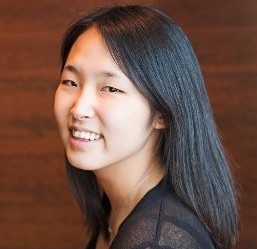How to use CBT strategies to support catastrophising students
The university-application process can invoke panic, distress and anxiety. Cognitive behavioural therapy offers counsellors some tools to help students manage these emotions

“I must get into Columbia – or else I’m a failure in life.”
“I got my first rejection. Life is terrible and I won’t get in anywhere.”
“These university applications and essays are just too much work.”
“I worked really hard and it’s unfair that I won’t get into these top universities.”
“I haven’t done anything in high school. I’m a useless person.”
Do any of these seem familiar to you? The university-application process comes with its fair share of panic, distress and anxiety. However, these extreme statements are not rational, nor do they help alleviate negative feelings.
As college counsellors, learning about basic approaches in counselling psychology will help us to understand the source of these statements and to counter them more effectively.
Counselling-psychology approaches
A popular counselling-psychology approach is Cognitive Behavioural Therapy (CBT), which helps individuals recognise distorted thinking patterns, gain better understanding of their behaviours and learn problem-solving skills to cope with difficult situations.
CBT puts forth a handy ABCDE model that is intuitive to understand – outlined on this worksheet. This ABCDE model can be easily applied to the college-counselling context. The following description will make more sense after you’ve looked through the worksheet.
For instance, let’s say a student was rejected by a highly selective university, her dream school (A: activating event). The student then believes that she is a failure in life and won’t get accepted anywhere else (B: beliefs).
The student may subsequently feel much anxiety, sadness, frustration and a host of negative emotions (C: consequences). Hopefully the student comes to you, as you are the college counsellor, to process these feelings.
You can then challenge her original belief, maybe with the following line of logic: just because she was rejected from a highly selective university, that doesn’t mean she is a failure in life – there is plenty of evidence that she is a capable student with a bright future. And, as you built a strategic college list with her, she will get into at least a few universities (D: disputations of beliefs).
Your student will then hopefully walk away from your office having adopted this new belief for herself (E: effective new beliefs).
We likely do this often with our students – disputing their old beliefs and helping them to adopt new ones. Counselling psychology approaches can take us one step further, by helping us understand different types of irrational beliefs the students can hold.
Types of irrational beliefs
Rational Emotive Behaviour Therapy (REBT) is another useful approach to turn to, as it delineates clear different categories of irrational beliefs.
REBT is a type of CBT, but with a strong focus on irrational beliefs. This article explains more about the differences between REBT and CBT. REBT is useful because it clearly delineates four types of irrational beliefs, which are titled: demandingness, awfulising, frustration intolerance and global evaluations of human worth.
Demandingness involves expecting events or people to conform precisely to one’s desires, often without regard for what is realistic. They can be recognised by cue words such as “must”, “ought”, “should”, “have to”, “got to” and “need”. The first statement in this article (“I must get into Columbia – or else I’m a failure in life”) corresponds to demandingness.
Awfulising, or catastrophising beliefs, is when someone exaggerates the negative aspects of the self, others or a situation to such an extent that it appears far worse than it actually is. Look for cue words such as “terrible”, “awful”, “catastrophic” or “worst”. The second statement in the opening of the article (“I got my first rejection. Life is terrible and I won’t get in anywhere”) earlier corresponds to awfulising.
Frustration intolerance arises from seeking constant ease and avoiding discomfort, leading to an inability to tolerate even minor frustrations. This can be further broken down into subtypes. An individual might be intolerant of emotional distress (emotional intolerance), want life to be easy and free of hassle (discomfort intolerance), want immediate gratification and be unable to tolerate any form of perceived unfairness (entitlement intolerance), or get very frustrated after failure to achieve a goal (achievement intolerance).
The third and fourth statements in the opening of the article (“These university applications and essays are just too much work”; “I worked really hard and it’s unfair that I won’t get into these top universities”) correspond to frustration intolerance.
Global negative assessments of human worth, whether of oneself or others, suggest that individuals can be rated and some deemed less valuable than others – or even worthless. The final opening statement (“I haven’t done anything in high school. I’m a useless person”) corresponds to global assessment of human worth.
Disputing negative emotions
These types of beliefs (B in the ABCDE model) can lead to a host of negative emotions (C in the ABCDE model). So how can we dispute them?
Before starting to think about how we can dispute these irrational beliefs, note that we should not challenge or invalidate the emerging emotions (the consequences of the beliefs) themselves, but rather respect and acknowledge them. A simple statement such as “That must be really hard”, “How frustrating”, or “I can see how you would feel that way”, can go a long way.
General strategies
There are general strategies to dispute cognitive beliefs. We can ask for logical consistency in the student’s narrative (“What do you mean by that word ‘must’/‘awful’/‘worthless’? Does it logically follow that you are a failure because you were rejected by a university?”).
We can evaluate whether the beliefs are really consistent with reality (especially with perceived ideas of fairness and the reality of admissions, and assess the value of continuing to hold the beliefs. We can also cite similar examples – perhaps from past students you’ve encountered – to show that others have not had their lives ruined by similar problems.
Addressing specific beliefs
You can also dispute each specific type of core irrational belief.
For demandingness, we can take apart the concept of “must”. It may be helpful to ask questions along the lines of “What sort of unrealistic expectations do the students have for themselves or others (like how the university admissions office must accept them), and why is this belief not helpful nor logical?”
To address awfulising, you can attack the concept of “awful”. Ask the student to think of a scenario that’s worse. Or suggest that they construct an awfulness scale from 1 to 100 – with 100 as the worst event imaginable – and then place the current situation on that scale.
For frustration intolerance, you can challenge the student to prove that they cannot actually bear something. Or you can practise the event they defined as unbearable – for example, actually trying the first part of a relatively easy application.
To battle global negative evaluations, one can turn to unconditional self-acceptance: acknowledgement of one’s fallibility and flaws. Battling the perfectionism that emerges so often in the university-application process and pointing out how to practise self-compassion will help students learn to be kind to themselves.
For further reading of how to dispute irrational beliefs, here is a handout and an article.
Note on boundaries
It’s important to remember that we are counsellors – but not social-emotional counsellors (unless you wear both hats at your school). When the depth of the conversation goes beyond your point of comfort or professional ability, you should refer students to the social-emotional counsellor to discuss more deeply rooted issues.
Collaborating with different stakeholders in the school is essential to the success of your role, as you alone cannot solve every issue arising from the university-application experience.
And remember: counsellors are human too, and these thoughts will often surface in our minds as well. Knowing this framework can help us not only support students more effectively, but can help us strive towards a more compassionate and understanding approach in our own lives, too.




